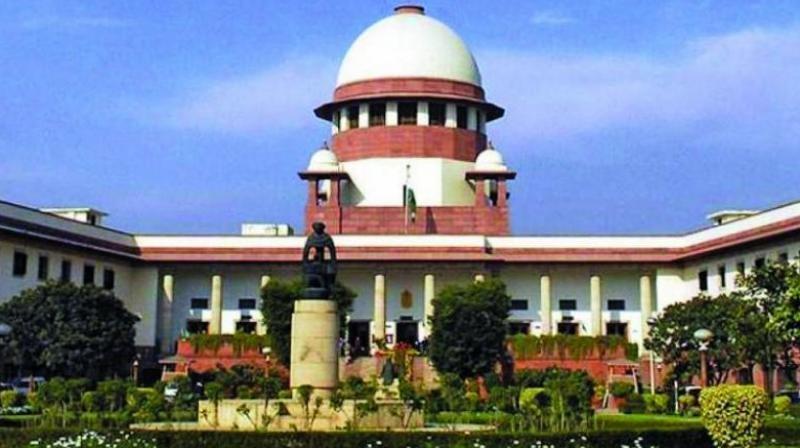SC Allows Review Petition Against the SC/ST Act Judgement, Detailed Hearing in 10 Days

Image Courtesy: The Asian Age
The Supreme Court allowed the government on Tuesday to file a review petition against its March 20 judgement on the SC/ST Act. The government has taken the step following the nationwide protests by the Dalit groups and the civil society against the apex court’s Judgement. The SC verdict is being widely criticised for the “dilution” of the SC/ST Act.
The Attorney General (AG), K. K. Venugopal—appearing for the government—focused on the aspect of the judgement that directed a preliminary inquiry before filing an FIR under the Scheduled Castes and Scheduled Tribes (Prevention of Atrocities) Act, 1989. It also says that failure to comply with the court’s directions would result in disciplinary proceedings against the police official, who will also have to face contempt of court proceedings.
The AG raised three issues in this regard. The first was that the directions could cause delay in compensation to the victims of atrocities, due to the additional time required for the preliminary inquiry. Amarendra Sharan, amicus curiae in the matter, countered this point by explaining that the directions, in no way, deny compensation to be promptly paid to the victim, but only mandates a preliminary inquiry.
He further stated that the directions do not inculcate prejudice against the members of the SC or ST community. “The directions only protect the innocent against abuse of law. Wrong and misleading projection in this regard needs to be checked,” he said.
One of the other concerns raised by the AG was that if the IPC offences are also a part of the complaint—apart from the ones under SC/ST act—it may have an impact on the registration of the FIR. The directions issued by the Supreme Court are also said to be in conflict with the CrPC. These issues were not discussed in the Order.
The court has deferred the hearing by 10 days to allow the State of Maharashtra to file its written submissions in the case. However, it has clarified that its directions did not conflict with the decision in Lalita Kumari case, which had made filing of an FIR mandatory. Instead, referring to the time limit specified in the Lalita Kumari case itself, the court directed that the inquiry must be completed within seven days of the receipt of the complaint. Depending on its findings, FIR may or may not be registered after that.
At this juncture, it should be added that the AG did apprise the court that ‘false’ or ‘malicious’ complaints constitute a miniscule proportion of the cases registered under the Act. The bench however, mentioned that they were not diluting the Act, but instead were seeking to protect innocents booked under the Act. The bench further clarified that the ‘abuse’ they were referring to was the abuse of police power and not the abuse of the Act by the members of the two titular categories. The bench expressed their concern that the police or others with vested interests may register malicious cases to bring disrepute to a person, who, in the view of the court, would qualify as a victim. Until further hearings, it would be impossible to truly decipher the spirit of the judgement, as the directions were certainly perceived very differently on April 2.
Get the latest reports & analysis with people's perspective on Protests, movements & deep analytical videos, discussions of the current affairs in your Telegram app. Subscribe to NewsClick's Telegram channel & get Real-Time updates on stories, as they get published on our website.
























